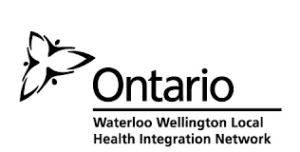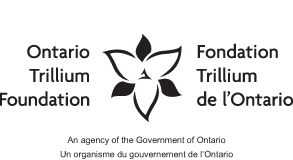Confidentiality & Privacy
Confidentiality
All client conversations and records are treated confidentially. Records are accessed only by staff who are involved in the client’s care. All medical records are the property of WCHC, but clients have the right to view their records. Clients may ask to see or have a copy of information from their records. Such requests should be made with the client’s usual provider.
Privacy Policy
WCHC is committed to respecting clients’ privacy. WCHC complies with the federal privacy legislation (Personal Information Protection and Electronic Documents Act, PIPEDA) and provincial legislation (Personal Health Information Protection Act, PHIPA), which applies to all persons and organizations deemed to be “health information custodians”.
The Director of Clinical Services is WCHC’s Privacy Officer. The Privacy Officer is the contact person for issues related to WCHC’s compliance with PHIPA and PIPEDA.
When clients provide Personal Information (PI) or Personal Health Information (PHI) to WCHC, they provide consent for WCHC to collect, use and disclose their PI or PHI. If clients do not agree, they are asked not to provide any PI or PHI to WCHC. Certain health services can only be offered if clients provide PI or PHI to WCHC. If clients choose not to provide required PI or PHI, WCHC may not be able to offer some services to those clients.
WCHC uses PI and PHI provided verbally or in writing by clients in order to:
- Provide clients with health care services and treatments
- Provide group programs and community health promotion services
- Manage relationship with clients
- Meet any legal or regulatory requirement; and
- Such other purposes consistent with the foregoing purposes.
WCHC’s use of PI and PHI is limited to these five purposes. WCHC does not sell or share any client PI and PHI for any other reasons. Unless permitted by law, no PI and PHI is collected about a client without first obtaining their consent. Consent may be verbal, written or implied (e.g., if a client provides PHI then it is understood that they consent to that information being used for receiving health care).
In order to meet client needs, PI and PHI may be shared between WCHC providers who are working with the client. If a client is referred or transferred to another health care provider outside of WCHC, the client’s implied or express consent will be obtained before sharing PI and PHI.
WCHC tries to ensure that all client PI and PHI is accurate, current and complete. PI and PHI in files for past clients or inactive clients is not actively updated.
WCHC retains PI and PHI in keeping with current laws about health records. When PI and PHI are no longer required to be retained, they shall be destroyed.
WCHC uses physical, procedural and technical security measures to protect PI and PHI. Only staff who need to know PI and PHI are allowed to access that information. Staff misuse of PI and PHI is treated as a serious offence. If client PI or PHI is stolen, lost or accessed by unauthorized persons, WCHC will notify the client as soon as possible.
Clients have the right to access and review their PI and PHI held by WCHC about that client. If a client believes their PI or PHI is not correct, they can ask for an update by contacting WCHC’s Privacy Officer. WCHC will correct its PI or PHI about the client if WCHC agrees that the information is incomplete or inaccurate.
Clients who have given PI and PHI to WCHC can make a complaint. Complaints could be about how PI and PHI is collected, stored, used or disclosed, or how access is provided. All privacy complaints will be addressed promptly and in a confidential manner. WCHC will respond to privacy complaints within 30 days or as soon as practicable. WCHC cannot address anonymous complaints because there is no way to follow-up with the person who complains. However, if an anonymous complaint is made, WCHC will note the issue and try to resolve it.
Clients who have provided WCHC with PI and PHI have a right to withdraw their earlier consent to disclose such information, or withhold consent in the future. If a client withdraws or withholds consent, this will be recorded in the client’s records. The provider will explain to the client possible consequences of withdrawing or withholding consent.
A copy of WCHC’s Privacy Policy and all detailed procedures may be obtained by contacting WCHC’s Privacy Officer, the Director of Clinical Services.
Circle of Care
WCHC values the trust patients and participants have placed in us. WCHC believes that ensuring the privacy of all personal information is important and will do our best to safeguard its confidentiality and security.
Personal Health Information (PHI) will only be shared within a client’s “circle of care”. The term “circle of care” is not defined in the Personal Health Information Protection Act, 2004 (PHIPA). “Circle of Care” means that certain health information custodians can assume a client’s implied consent to collect, use or disclose PHI in order to provide health care, in certain situations defined in PHIPA.
WCHC respects a client’s circle of care. This means that client PHI is held, used and shared responsibly and securely. WCHC collects some PHI from new clients during the initial intake process or on the first day of a program. We also collect more PHI on an on-going basis as we provide clients with services and programs over time. WCHC only collects PHI that is needed to provide services to clients. PHI is only shared with those who are responsible for care of that client, on a “need to know” basis.
WCHC collects, uses and shares personal information in order to:
- provide clinical patients with quality primary care services and treatments
- provide clinical patients with quality primary care via the Ontario Telemedicine Network (OTN)
- provide counselling services to clients
- provide clients with personal and community health programs and services
- allow individual providers and provider teams to assess client health needs
- help us contact and maintain communication with clients
- communicate with and make referrals to other health care providers, like specialists
- complete and submit claim forms for third party payment, if required
- comply with legal or regulatory requirements
- allow chart audits to be conducted by a qualified professional





